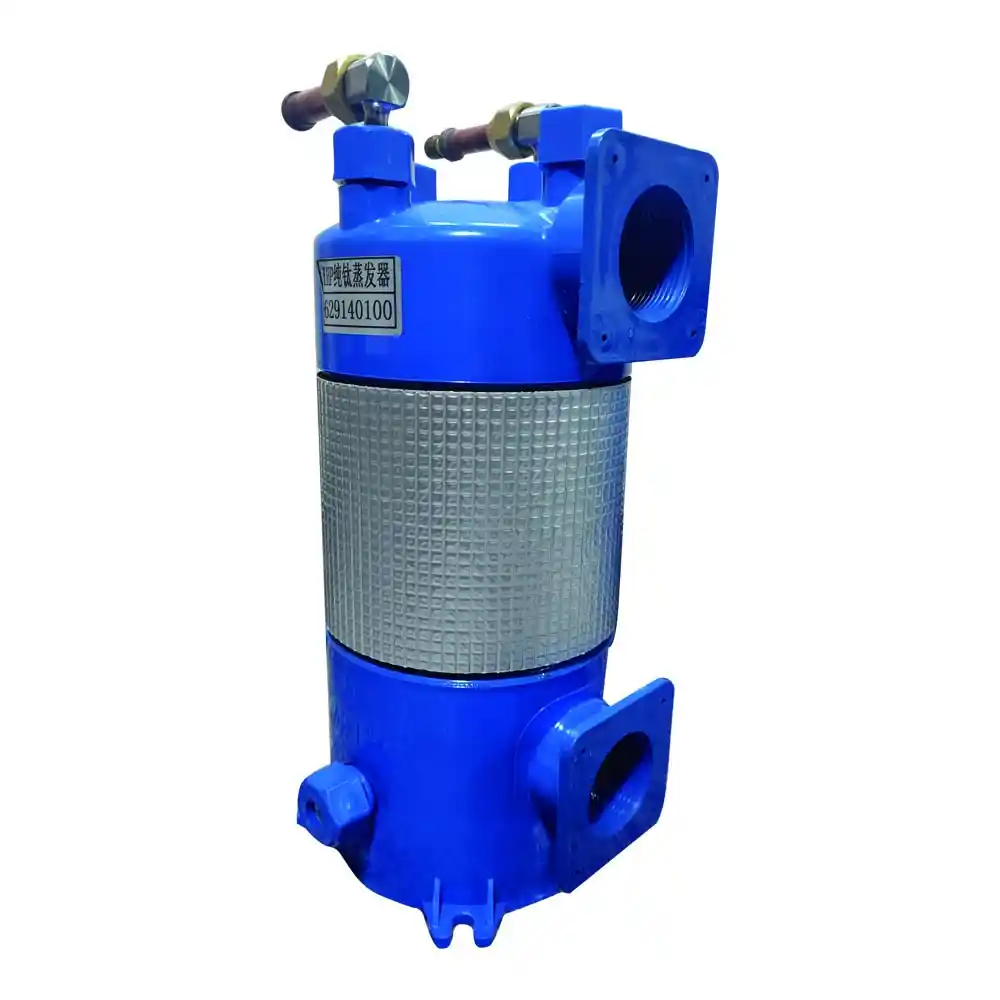1. Introduction
Renewable energy sources, such as solar, wind, and geothermal, are gaining increasing prominence as sustainable alternatives to traditional fossil fuel-based energy generation. The efficient utilization of these renewable resources requires the development of advanced technologies that can enhance energy conversion and optimize system performance. Titanium Coil Heat Exchangers have emerged as a key component in renewable energy applications, facilitating efficient heat transfer and contributing to the overall effectiveness of renewable energy systems.
2. The Role of Heat Exchangers in Renewable Energy Systems
Heat exchangers play a vital role in various renewable energy applications by facilitating the transfer of heat between different fluids or heat sources. They enable the extraction, transfer, and management of thermal energy, enhancing the efficiency and operational effectiveness of renewable energy systems. Titanium Coil Heat Exchangers offer unique advantages that make them well-suited for a wide range of renewable energy applications.
3. Advantages of Titanium Coil Heat Exchangers in Renewable Energy
Titanium Coil Heat Exchangers provide several key benefits when integrated into renewable energy systems, including:
3.1 Corrosion Resistance
Renewable energy systems often involve working with corrosive fluids or environments. Titanium’s exceptional corrosion resistance ensures the longevity and durability of heat exchangers in such conditions. This resistance allows for the safe and efficient transfer of heat without degradation or performance loss, even in demanding operating environments.
3.2 High Thermal Conductivity
Titanium possesses excellent thermal conductivity, allowing for efficient heat transfer between fluids. This characteristic is particularly important in renewable energy systems, where maximizing heat transfer efficiency is essential for optimal energy conversion and system performance.
3.3 Lightweight and Durable
Titanium Coil Heat Exchangers are lightweight and highly durable, making them suitable for various renewable energy applications. Their lightweight nature reduces the overall weight and complexity of systems, simplifying installation and maintenance. Additionally, their durability ensures long-term performance and minimizes the need for frequent repairs or replacements.
3.4 Compatibility with Renewable Energy Fluids
Titanium is compatible with a wide range of fluids used in renewable energy systems, such as heat transfer fluids, geothermal brines, and corrosive solutions. This compatibility enables the efficient transfer of heat without the risk of chemical reactions or degradation, ensuring the integrity and effectiveness of the overall system.
4. Applications of Titanium Coil Heat Exchangers in Renewable Energy
Titanium Coil Heat Exchangers find application in various renewable energy sectors, contributing to improved efficiency and performance. Let’s explore a few examples:
4.1 Solar Thermal Systems
Solar thermal systems harness the sun’s energy to generate heat for domestic and industrial applications. Titanium Coil Heat Exchangers are used in solar collectors to transfer heat from the solar fluid (e.g., glycol or water) to the desired application. Their corrosion resistance and high thermal conductivity enable efficient heat transfer, maximizing the system’s overall energy conversion.
4.2 Geothermal Heat Pump Systems
Geothermal heat pump systems utilize the stable temperature of the earth to provide heating and cooling for buildings. Titanium Coil Heat Exchangers are employed in these systems to transfer heat between the geothermal fluid (e.g., water or antifreeze solution) and the heat pump. Their corrosion resistance ensures the longevity of the heat exchanger, while their high thermal conductivity optimizes heat transfer efficiency.
4.3 Biomass and Biogas Applications
Biomass and biogas systems convert organic materials into heat or electrical energy. Titanium Coil Heat Exchangers play a vital role in these applications by facilitating heat transfer between the combustion gases or biogas and the working fluid. Their compatibility with corrosive gases and fluids, along with their durability, makes them well-suited for these demanding environments.
5. Case Studies: Comparative Analysis of Titanium Coil Heat Exchangers
To further illustrate the effectiveness of Titanium Coil Heat Exchangers in renewable energy applications, let’s examine a comparative analysis of their performance in different scenarios. The following table presents a summary of the performance metrics:monstrates their versatility and effectiveness in diverse renewable energy scenarios.
6. Conclusion
As the demand for renewable energy continues to rise, the importance of efficient heat transfer technologies cannot be overstated. Titanium Coil Heat Exchangers offer a range of benefits that make them highly suitable for various renewable energy applications. Their corrosion resistance, high thermal conductivity, lightweight nature, and compatibility with renewable energy fluids contribute to enhanced system performance and sustainability.
By harnessing the capabilities of Titanium Coil Heat Exchangers, the renewable energy sector can optimize energy conversion, improve system efficiency, and contribute to a greener and more sustainable future.
Remember to replace the placeholder text with detailed content, and feel free to make further modifications as needed.


